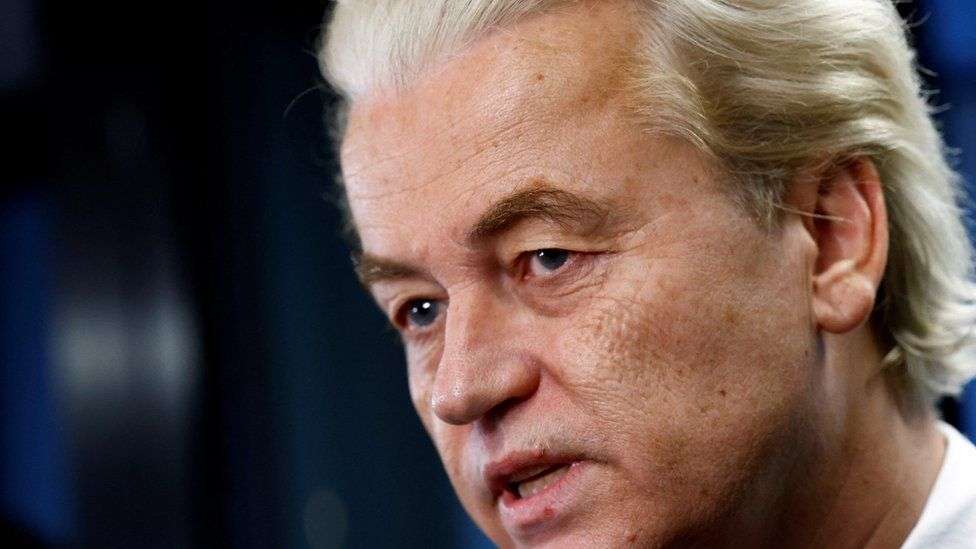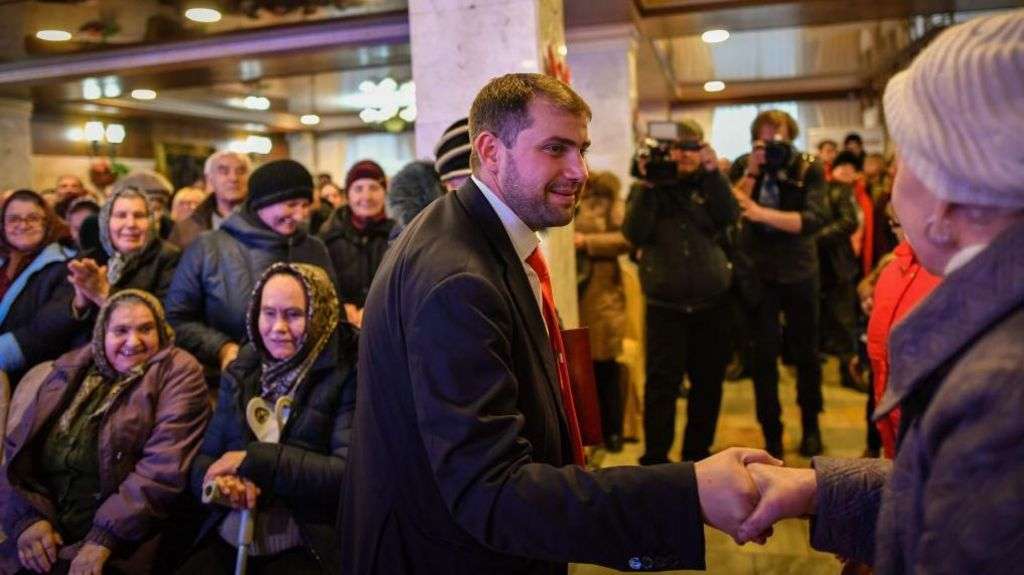A Dutch party that won 20 seats in last week's election has said it will not join coalition talks with anti-Islam leader Geert Wilders for now.
The New Social Contract party said Mr Wilders' election manifesto risked breaching the Dutch constitution.
His Freedom party (PVV) caused a dramatic upset by winning most seats in the general election victory but now needs to secure a majority.
To become prime minister, he needs the backing of other big parties.
However, he is struggling to get them to join coalition talks because of his party's policies on banning mosques, holding a "Nexit" referendum on leaving the EU and halting military aid to Ukraine.
Last Friday, the head of the conservative liberal VVD said she was only prepared to prop up a Wilders-led minority government by staying outside a coalition.
Now the leader of the New Social Contract (NSC), Pieter Omtzigt, has said he has concerns around MPs and ministers "swearing allegiance to the constitution" if the PVV's policies break it anyway.
He only formed the NSC in August but is now seen as potential kingmaker after the 22 November election.
"All in all, the NSC faction now sees no basis for starting negotiations with the PVV about a majority government or a minority government," he stated.
"We have consistently stated in recent months that we will not make any concessions to these principles," Mr Omtzigt said. "Here we draw a hard line."
Without Mr Omtzigt on board, Mr Wilders faces the prospect of trying to form a hard-right minority coalition, with support in parliament from the VVD under Dilan Yesilgöz, who replaced long-serving prime minister Mark Rutte as its leader.
Mr Wilders, won 37 seats in the 150-seat parliament by tapping into concerns about immigration and a shortage of housing, and by softening his anti-Islam policies by saying he was prepared to put them "on ice".
His opponents have pointed out that banning the Quran and Islamic schools would infringe on Dutch citizens' constitutional right to freely practise their religion.
It can take months to form a Dutch government and the process has had an ominous start.
First Dilan Yesilgöz announced she would not join a coalition under his leadership, then the man chosen by Mr Wilders to "scout" out the other parties stepped down because of allegations of financial irregularities.
Mr Omtzigt said on Wednesday that before his party could consider coalition talks the PVV had to "indicate unequivocally which controversial points from its election manifesto are no longer current".
He also predicted "many political obstacles" to the two parties reaching an agreement - citing Mr Wilders' desire to hold a "Nexit" referendum as one example.








